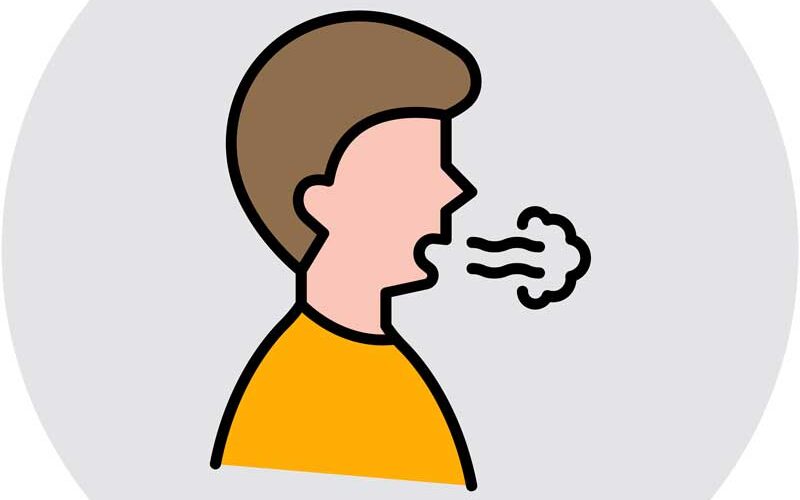Bad breath, also known as halitosis, is an olfactory nuisance experienced by many individuals, causing discomfort and embarrassment for both the afflicted individual and those in their proximity. The pervasive nature of this issue often leads to heightened self-consciousness and anxiety in severe cases. Modern markets are inundated with various remedies like Eclipse, gum, and mouthwash, offering temporary relief by masking the malodor rather than addressing its root cause.
Numerous factors contribute to halitosis, including lifestyle habits, underlying health conditions, and dietary choices. While diligent oral hygiene can mitigate its effects in many instances, persistent cases may necessitate professional intervention, as highlighted by the Mayo Clinic in 2018. Consulting with a healthcare provider can uncover underlying causes and provide tailored solutions for long-term management. By addressing both symptomatic relief and preventative measures, individuals can regain confidence and alleviate the social discomfort associated with bad breath.
What causes bad breath? Which people are more likely to suffer from bad breath?
Several factors contribute to the emergence of bad breath, including dietary choices that can exacerbate the condition. Consuming pungent foods like spices, onions, and garlic can intensify malodor by releasing volatile compounds during digestion. Moreover, certain medications, particularly those that induce dryness in the mouth, can exacerbate halitosis by impeding saliva production, which plays a crucial role in oral hygiene.
Additionally, various oral and nasal conditions can foster an environment conducive to bad breath. Tonsil stones, for instance, are small calcified formations in the tonsils that harbor bacteria, emitting foul odors. Concurrently, infections or chronic inflammation in the nasal passages, sinuses, or throat can precipitate postnasal drip, wherein nasal secretions trickle down the throat, contributing to malodor.
However, dietary factors alone do not account for bad breath. Underlying health issues can also manifest as distinctive halitosis. For instance, persistent heartburn symptoms may signal gastroesophageal reflux disease (GERD), underscoring the importance of holistic health management (Mayo Clinic, 2018b). Therefore, maintaining oral hygiene and addressing potential medical conditions are integral to mitigating the prevalence of bad breath and preserving overall well-being.
What foods cause bad breath?
The absence of saliva in the mouth provides an ideal breeding ground for bacteria, leading to bad breath. During sleep, saliva production decreases naturally, exacerbating morning breath. Consistent hydration throughout the day can alleviate this issue, as water helps maintain saliva flow. Aim to consume a minimum of eight glasses daily to combat dry mouth and reduce bad breath.
Incorporating yogurt into your diet can also aid in combating halitosis. Rich in lactic acid bacteria, known as probiotics, yogurt helps regulate the bacterial flora in various bodily systems, including the mouth. Studies have shown that regular consumption of yogurt can significantly reduce bad breath. In one experiment spanning six weeks, 80 percent of participants experienced a decrease in halitosis after incorporating yogurt into their daily regimen. Probiotics in yogurt effectively diminish the intensity of bad breath, making it a beneficial addition to your diet.
By prioritizing hydration and integrating probiotic-rich foods like yogurt into your meals, you can mitigate the occurrence and intensity of bad breath, promoting oral health and overall well-being (Osborn, 2018).
Solution
Addressing bad breath requires a multifaceted approach encompassing regular oral hygiene practices and mindful dietary choices.
Ensure you brush your teeth diligently, ideally after every meal or snack, to eliminate food particles and bacteria that can contribute to halitosis. Investing in a portable toothbrush for use at work, school, or other settings can facilitate this routine. Aim for at least two thorough brushing sessions daily, using an antibacterial toothpaste to target odor-causing bacteria effectively.
Supplement your oral care regimen with daily flossing to dislodge debris and plaque from between teeth, preventing bacterial buildup that exacerbates bad breath. Don’t neglect your tongue during brushing; bacteria tend to accumulate on its surface, contributing significantly to oral malodor. Incorporating tongue brushing into your oral hygiene routine can effectively reduce bad breath by addressing this bacterial reservoir.
Moreover, be mindful of your dietary choices, opting for foods that promote oral health and fresh breath, such as crunchy fruits and vegetables. Limiting the consumption of pungent foods like garlic and onions can also help mitigate bad breath.
By adopting these practices consistently, you can effectively combat bad breath and maintain optimal oral hygiene, promoting confidence and overall well-being (Osborn, 2018).
Conclusion: A Quick Review
In summary, bad breath can stem from various sources, including dietary choices and underlying health conditions. However, proactive measures can significantly alleviate its impact. Incorporating post-meal tooth brushing into your routine is crucial, as it effectively removes food particles and bacteria that contribute to halitosis. Despite its simplicity, this practice is often overlooked but proves to be highly effective in combating bad breath. Additionally, regular dental check-ups play a vital role in maintaining oral health and detecting any underlying issues that may exacerbate malodor. By staying vigilant and proactive in managing oral hygiene, individuals can mitigate the occurrence of bad breath and maintain fresh breath confidence (Editorial Team, 2020).
Reference
Editorial Team, H. (2020). Bad Breath (Halitosis). [online] Healthline. Available at: https://www.healthline.com/health/bad-breath#diagnosis [Accessed 20 April. 2024].
Mayo Clinic (2018b). Bad breath – Symptoms and causes. [online] Mayo Clinic. Available at: https://www.mayoclinic.org/diseases-conditions/bad-breath/symptoms-causes/syc-20350922 [Accessed 20 April. 2024].
Osborn, C.O. (2018). Home Remedies for Bad Breath: Baking Soda, Vinegar, and More. [online] Healthline. Available at: https://www.healthline.com/health/home-remedies-for-bad-breath#home-remedies [Accessed 20 April. 2024].
